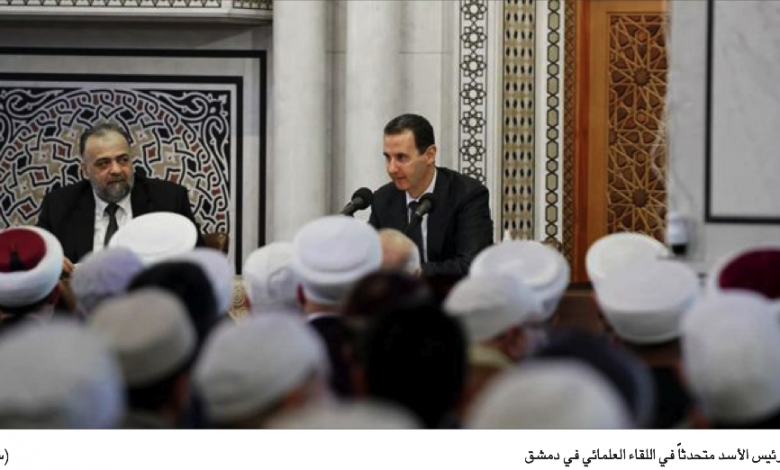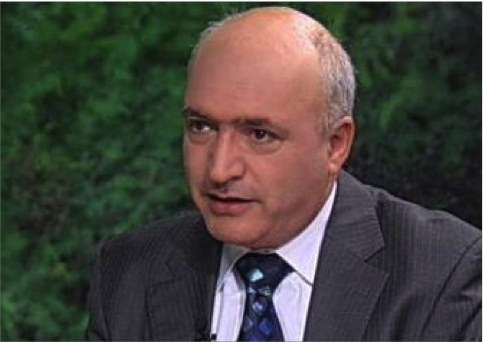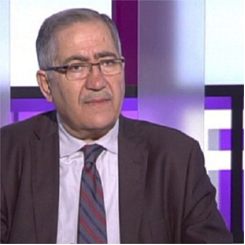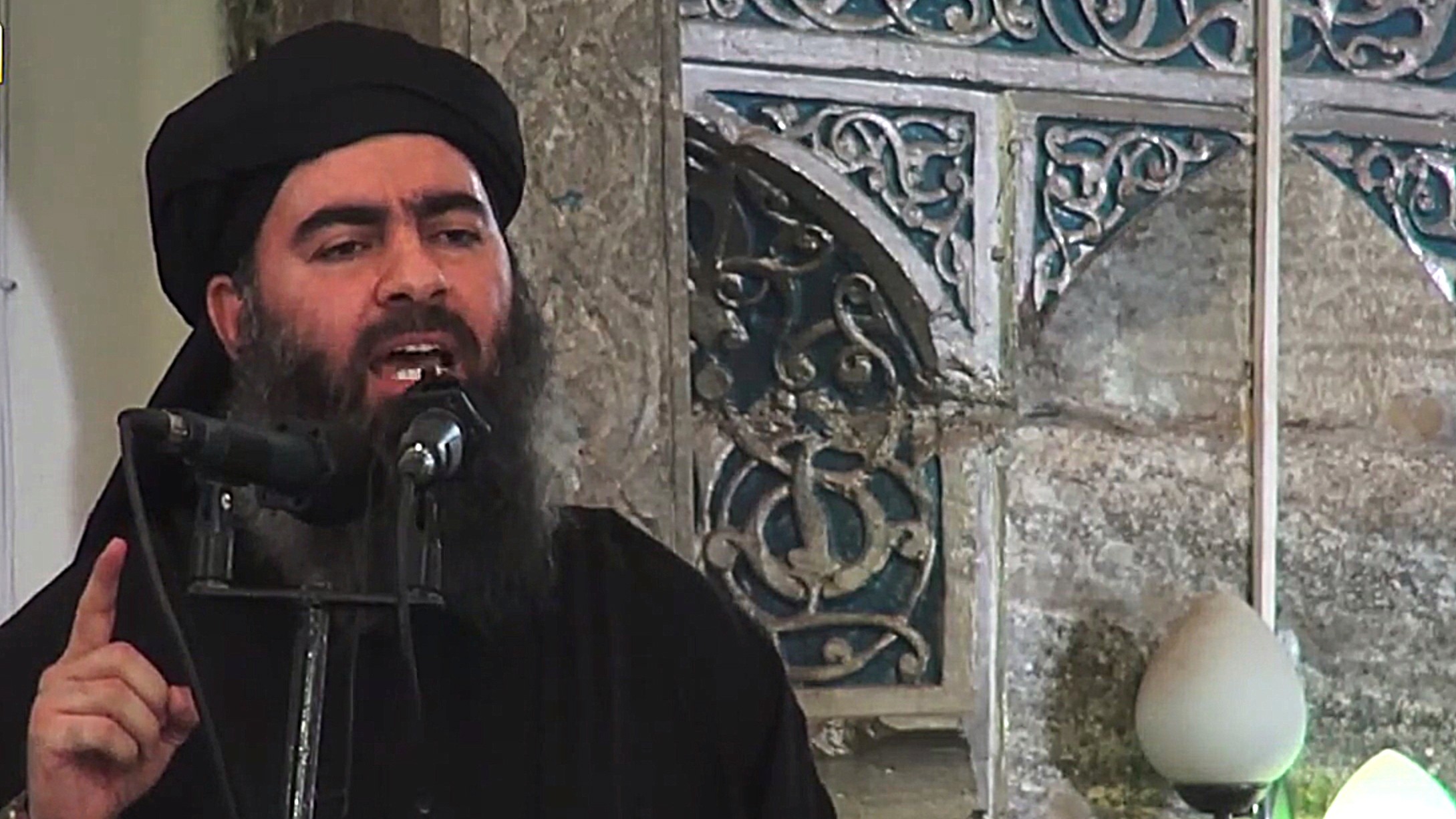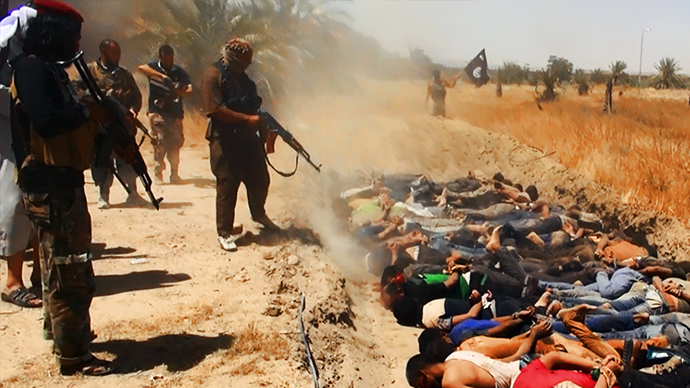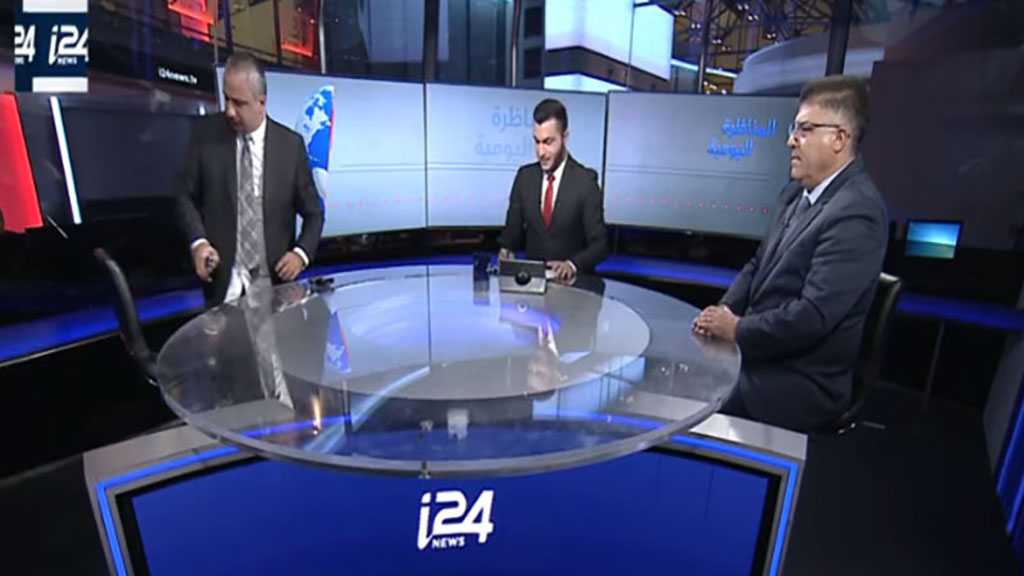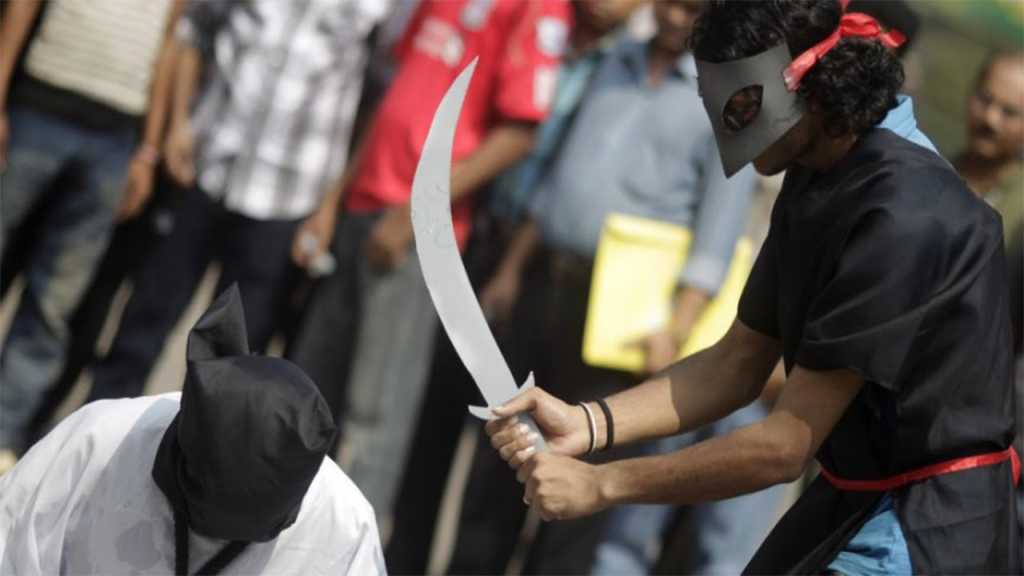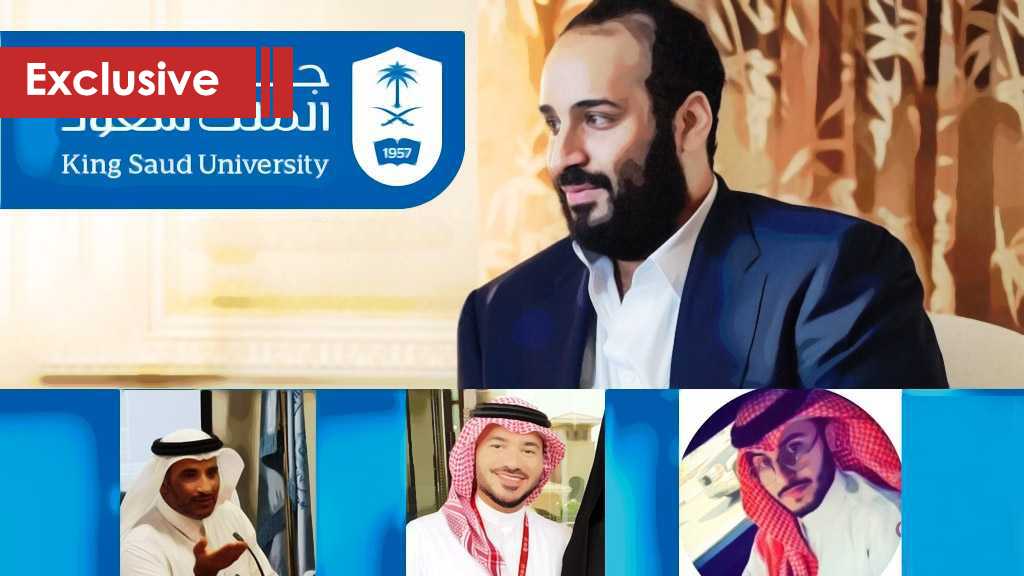
By Alastair Crooke
July 14, 2017 “Information Clearing House” – BEIRUT — The dramatic arrival of Da’ish (ISIS) on the stage of Iraq has shocked many in the West. Many have been perplexed — and horrified — by its violence and its evident magnetism for Sunni youth. But more than this, they find Saudi Arabia’s ambivalence in the face of this manifestation both troubling and inexplicable, wondering, “Don’t the Saudis understand that ISIS threatens them, too?”
It appears — even now — that Saudi Arabia’s ruling elite is divided. Some applaud that ISIS is fighting Iranian Shiite “fire” with Sunni “fire”; that a new Sunni state is taking shape at the very heart of what they regard as a historical Sunni patrimony; and they are drawn by Da’ish’s strict Salafist ideology.
Other Saudis are more fearful, and recall the history of the revolt against Abd-al Aziz by the Wahhabist Ikhwan (Disclaimer: this Ikhwan has nothing to do with the Muslim Brotherhood Ikhwan — please note, all further references hereafter are to the Wahhabist Ikhwan, and not to the Muslim Brotherhood Ikhwan), but which nearly imploded Wahhabism and the al-Saud in the late 1920s.
Many Saudis are deeply disturbed by the radical doctrines of Da’ish (ISIS) — and are beginning to question some aspects of Saudi Arabia’s direction and discourse.
THE SAUDI DUALITY
Saudi Arabia’s internal discord and tensions over ISIS can only be understood by grasping the inherent (and persisting) duality that lies at the core of the Kingdom’s doctrinal makeup and its historical origins.
One dominant strand to the Saudi identity pertains directly to Muhammad ibn ʿAbd al-Wahhab (the founder of Wahhabism), and the use to which his radical, exclusionist puritanism was put by Ibn Saud. (The latter was then no more than a minor leader — amongst many — of continually sparring and raiding Bedouin tribes in the baking and desperately poor deserts of the Nejd.)
The second strand to this perplexing duality, relates precisely to King Abd-al Aziz’s subsequent shift towards statehood in the 1920s: his curbing of Ikhwani violence (in order to have diplomatic standing as a nation-state with Britain and America); his institutionalization of the original Wahhabist impulse — and the subsequent seizing of the opportunely surging petrodollar spigot in the 1970s, to channel the volatile Ikhwani current away from home towards export — by diffusing a cultural revolution, rather than violent revolution throughout the Muslim world.
But this “cultural revolution” was no docile reformism. It was a revolution based on Abd al-Wahhab’s Jacobin-like hatred for the putrescence and deviationism that he perceived all about him — hence his call to purge Islam of all its heresies and idolatries.
MUSLIM IMPOSTORS
The American author and journalist, Steven Coll, has written how this austere and censorious disciple of the 14th century scholar Ibn Taymiyyah, Abd al-Wahhab, despised “the decorous, arty, tobacco smoking, hashish imbibing, drum pounding Egyptian and Ottoman nobility who travelled across Arabia to pray at Mecca.”
In Abd al-Wahhab’s view, these were not Muslims; they were imposters masquerading as Muslims. Nor, indeed, did he find the behavior of local Bedouin Arabs much better. They aggravated Abd al-Wahhab by their honoring of saints, by their erecting of tombstones, and their “superstition” (e.g. revering graves or places that were deemed particularly imbued with the divine).
All this behavior, Abd al-Wahhab denounced as bida — forbidden by God.
Like Taymiyyah before him, Abd al-Wahhab believed that the period of the Prophet Muhammad’s stay in Medina was the ideal of Muslim society (the “best of times”), to which all Muslims should aspire to emulate (this, essentially, is Salafism).
Taymiyyah had declared war on Shi’ism, Sufism and Greek philosophy. He spoke out, too against visiting the grave of the prophet and the celebration of his birthday, declaring that all such behavior represented mere imitation of the Christian worship of Jesus as God (i.e. idolatry). Abd al-Wahhab assimilated all this earlier teaching, stating that “any doubt or hesitation” on the part of a believer in respect to his or her acknowledging this particular interpretation of Islam should “deprive a man of immunity of his property and his life.”
One of the main tenets of Abd al-Wahhab’s doctrine has become the key idea of takfir. Under the takfiri doctrine, Abd al-Wahhab and his followers could deem fellow Muslims infidels should they engage in activities that in any way could be said to encroach on the sovereignty of the absolute Authority (that is, the King). Abd al-Wahhab denounced all Muslims who honored the dead, saints, or angels. He held that such sentiments detracted from the complete subservience one must feel towards God, and only God. Wahhabi Islam thus bans any prayer to saints and dead loved ones, pilgrimages to tombs and special mosques, religious festivals celebrating saints, the honoring of the Muslim Prophet Muhammad’s birthday, and even prohibits the use of gravestones when burying the dead.
Those who would not conform to this view should be killed, their wives and daughters violated, and their possessions confiscated, he wrote.
Abd al-Wahhab demanded conformity — a conformity that was to be demonstrated in physical and tangible ways. He argued that all Muslims must individually pledge their allegiance to a single Muslim leader (a Caliph, if there were one). Those who would not conform to this view should be killed, their wives and daughters violated, and their possessions confiscated, he wrote. The list of apostates meriting death included the Shiite, Sufis and other Muslim denominations, whom Abd al-Wahhab did not consider to be Muslim at all.
There is nothing here that separates Wahhabism from ISIS. The rift would emerge only later: from the subsequent institutionalization of Muhammad ibn ʿAbd al-Wahhab’s doctrine of “One Ruler, One Authority, One Mosque” — these three pillars being taken respectively to refer to the Saudi king, the absolute authority of official Wahhabism, and its control of “the word” (i.e. the mosque).
It is this rift — the ISIS denial of these three pillars on which the whole of Sunni authority presently rests — makes ISIS, which in all other respects conforms to Wahhabism, a deep threat to Saudi Arabia.
BRIEF HISTORY 1741- 1818
Abd al-Wahhab’s advocacy of these ultra radical views inevitably led to his expulsion from his own town — and in 1741, after some wanderings, he found refuge under the protection of Ibn Saud and his tribe. What Ibn Saud perceived in Abd al-Wahhab’s novel teaching was the means to overturn Arab tradition and convention. It was a path to seizing power.
Their strategy — like that of ISIS today — was to bring the peoples whom they conquered into submission. They aimed to instill fear.
Ibn Saud’s clan, seizing on Abd al-Wahhab’s doctrine, now could do what they always did, which was raiding neighboring villages and robbing them of their possessions. Only now they were doing it not within the ambit of Arab tradition, but rather under the banner of jihad. Ibn Saud and Abd al-Wahhab also reintroduced the idea of martyrdom in the name of jihad, as it granted those martyred immediate entry into paradise.
In the beginning, they conquered a few local communities and imposed their rule over them. (The conquered inhabitants were given a limited choice: conversion to Wahhabism or death.) By 1790, the Alliance controlled most of the Arabian Peninsula and repeatedly raided Medina, Syria and Iraq.
Their strategy — like that of ISIS today — was to bring the peoples whom they conquered into submission. They aimed to instill fear. In 1801, the Allies attacked the Holy City of Karbala in Iraq. They massacred thousands of Shiites, including women and children. Many Shiite shrines were destroyed, including the shrine of Imam Hussein, the murdered grandson of Prophet Muhammad.
A British official, Lieutenant Francis Warden, observing the situation at the time, wrote: “They pillaged the whole of it [Karbala], and plundered the Tomb of Hussein… slaying in the course of the day, with circumstances of peculiar cruelty, above five thousand of the inhabitants …”
Osman Ibn Bishr Najdi, the historian of the first Saudi state, wrote that Ibn Saud committed a massacre in Karbala in 1801. He proudly documented that massacre saying, “we took Karbala and slaughtered and took its people (as slaves), then praise be to Allah, Lord of the Worlds, and we do not apologize for that and say: ‘And to the unbelievers: the same treatment.’”
In 1803, Abdul Aziz then entered the Holy City of Mecca, which surrendered under the impact of terror and panic (the same fate was to befall Medina, too). Abd al-Wahhab’s followers demolished historical monuments and all the tombs and shrines in their midst. By the end, they had destroyed centuries of Islamic architecture near the Grand Mosque.
But in November of 1803, a Shiite assassin killed King Abdul Aziz (taking revenge for the massacre at Karbala). His son, Saud bin Abd al Aziz, succeeded him and continued the conquest of Arabia. Ottoman rulers, however, could no longer just sit back and watch as their empire was devoured piece by piece. In 1812, the Ottoman army, composed of Egyptians, pushed the Alliance out from Medina, Jeddah and Mecca. In 1814, Saud bin Abd al Aziz died of fever. His unfortunate son Abdullah bin Saud, however, was taken by the Ottomans to Istanbul, where he was gruesomely executed (a visitor to Istanbul reported seeing him having been humiliated in the streets of Istanbul for three days, then hanged and beheaded, his severed head fired from a canon, and his heart cut out and impaled on his body).
In 1815, Wahhabi forces were crushed by the Egyptians (acting on the Ottoman’s behalf) in a decisive battle. In 1818, the Ottomans captured and destroyed the Wahhabi capital of Dariyah. The first Saudi state was no more. The few remaining Wahhabis withdrew into the desert to regroup, and there they remained, quiescent for most of the 19th century.
HISTORY RETURNS WITH ISIS
It is not hard to understand how the founding of the Islamic State by ISIS in contemporary Iraq might resonate amongst those who recall this history. Indeed, the ethos of 18th century Wahhabism did not just wither in Nejd, but it roared back into life when the Ottoman Empire collapsed amongst the chaos of World War I.
The Al Saud — in this 20th century renaissance — were led by the laconic and politically astute Abd-al Aziz, who, on uniting the fractious Bedouin tribes, launched the Saudi “Ikhwan” in the spirit of Abd-al Wahhab’s and Ibn Saud’s earlier fighting proselytisers.
The Ikhwan was a reincarnation of the early, fierce, semi-independent vanguard movement of committed armed Wahhabist “moralists” who almost had succeeded in seizing Arabia by the early 1800s. In the same manner as earlier, the Ikhwan again succeeded in capturing Mecca, Medina and Jeddah between 1914 and 1926. Abd-al Aziz, however, began to feel his wider interests to be threatened by the revolutionary “Jacobinism” exhibited by the Ikhwan. The Ikhwan revolted — leading to a civil war that lasted until the 1930s, when the King had them put down: he machine-gunned them.
For this king, (Abd-al Aziz), the simple verities of previous decades were eroding. Oil was being discovered in the peninsular. Britain and America were courting Abd-al Aziz, but still were inclined to support Sharif Husain as the only legitimate ruler of Arabia. The Saudis needed to develop a more sophisticated diplomatic posture.
So Wahhabism was forcefully changed from a movement of revolutionary jihad and theological takfiri purification, to a movement of conservative social, political, theological, and religious da’wa (Islamic call) and to justifying the institution that upholds loyalty to the royal Saudi family and the King’s absolute power.
OIL WEALTH SPREAD WAHHABISM
With the advent of the oil bonanza — as the French scholar, Giles Kepel writes, Saudi goals were to “reach out and spread Wahhabism across the Muslim world … to “Wahhabise” Islam, thereby reducing the “multitude of voices within the religion” to a “single creed” — a movement which would transcend national divisions. Billions of dollars were — and continue to be — invested in this manifestation of soft power.
It was this heady mix of billion dollar soft power projection — and the Saudi willingness to manage Sunni Islam both to further America’s interests, as it concomitantly embedded Wahhabism educationally, socially and culturally throughout the lands of Islam — that brought into being a western policy dependency on Saudi Arabia, a dependency that has endured since Abd-al Aziz’s meeting with Roosevelt on a U.S. warship (returning the president from the Yalta Conference) until today.
Westerners looked at the Kingdom and their gaze was taken by the wealth; by the apparent modernization; by the professed leadership of the Islamic world. They chose to presume that the Kingdom was bending to the imperatives of modern life — and that the management of Sunni Islam would bend the Kingdom, too, to modern life.
On the one hand, ISIS is deeply Wahhabist. On the other hand, it is ultra radical in a different way. It could be seen essentially as a corrective movement to contemporary Wahhabism.
But the Saudi Ikhwan approach to Islam did not die in the 1930s. It retreated, but it maintained its hold over parts of the system — hence the duality that we observe today in the Saudi attitude towards ISIS.
On the one hand, ISIS is deeply Wahhabist. On the other hand, it is ultra radical in a different way. It could be seen essentially as a corrective movement to contemporary Wahhabism.
ISIS is a “post-Medina” movement: it looks to the actions of the first two Caliphs, rather than the Prophet Muhammad himself, as a source of emulation, and it forcefully denies the Saudis’ claim of authority to rule.
As the Saudi monarchy blossomed in the oil age into an ever more inflated institution, the appeal of the Ikhwan message gained ground (despite King Faisal’s modernization campaign). The “Ikhwan approach” enjoyed — and still enjoys — the support of many prominent men and women and sheikhs. In a sense, Osama bin Laden was precisely the representative of a late flowering of this Ikhwani approach.
Today, ISIS’ undermining of the legitimacy of the King’s legitimacy is not seen to be problematic, but rather a return to the true origins of the Saudi-Wahhab project.
In the collaborative management of the region by the Saudis and the West in pursuit of the many western projects (countering socialism, Ba’athism, Nasserism, Soviet and Iranian influence), western politicians have highlighted their chosen reading of Saudi Arabia (wealth, modernization and influence), but they chose to ignore the Wahhabist impulse.
After all, the more radical Islamist movements were perceived by Western intelligence services as being more effective in toppling the USSR in Afghanistan — and in combatting out-of-favor Middle Eastern leaders and states.
Why should we be surprised then, that from Prince Bandar’s Saudi-Western mandate to manage the insurgency in Syria against President Assad should have emerged a neo-Ikhwan type of violent, fear-inducing vanguard movement: ISIS? And why should we be surprised — knowing a little about Wahhabism — that “moderate” insurgents in Syria would become rarer than a mythical unicorn? Why should we have imagined that radical Wahhabism would create moderates? Or why could we imagine that a doctrine of “One leader, One authority, One mosque: submit to it, or be killed” could ever ultimately lead to moderation or tolerance?
Or, perhaps, we never imagined.
Part II
Middle East Time Bomb: The Real Aim of ISIS Is to Replace the Saud Family as the New Emirs of Arabia
By Alastair Crooke
ISIS is indeed a veritable time bomb inserted into the heart of the Middle East. But its destructive power is not as commonly understood. It is not with the “March of the Beheaders”; it is not with the killings; the seizure of towns and villages; the harshest of “justice” — terrible though they are — that its true explosive power lies. It is yet more potent than its exponential pull on young Muslims, its huge arsenal of weapons and its hundreds of millions of dollars.
“We should understand that there is really almost nothing that the West can now do about it but sit and watch.”
Its real potential for destruction lies elsewhere — in the implosion of Saudi Arabia as a foundation stone of the modern Middle East. We should understand that there is really almost nothing that the West can now do about it but sit and watch.
The clue to its truly explosive potential, as Saudi scholar Fouad Ibrahim has pointed out (but which has passed, almost wholly overlooked, or its significance has gone unnoticed), is ISIS’ deliberate and intentional use in its doctrine — of the language of Abd-al Wahhab, the 18th century founder, together with Ibn Saud, of Wahhabism and the Saudi project:
Abu Omar al-Baghdadi, the first “prince of the faithful” in the Islamic State of Iraq, in 2006 formulated, for instance, the principles of his prospective state … Among its goals is disseminating monotheism “which is the purpose [for which humans were created] and [for which purpose they must be called] to Islam…” This language replicates exactly Abd-al Wahhab’s formulation. And, not surprisingly, the latter’s writings and Wahhabi commentaries on his works are widely distributed in the areas under ISIS’ control and are made the subject of study sessions. Baghdadi subsequently was to note approvingly, “a generation of young men [have been] trained based on the forgotten doctrine of loyalty and disavowal.”
And what is this “forgotten” tradition of “loyalty and disavowal?” It is Abd al-Wahhab’s doctrine that belief in a sole (for him an anthropomorphic) God — who was alone worthy of worship — was in itself insufficient to render man or woman a Muslim?
He or she could be no true believer, unless additionally, he or she actively denied (and destroyed) any other subject of worship. The list of such potential subjects of idolatrous worship, which al-Wahhab condemned as idolatry, was so extensive that almost all Muslims were at risk of falling under his definition of “unbelievers.” They therefore faced a choice: Either they convert to al-Wahhab’s vision of Islam — or be killed, and their wives, their children and physical property taken as the spoils of jihad. Even to express doubts about this doctrine, al-Wahhab said, should occasion execution.
“Through its intentional adoption of this Wahhabist language, ISIS is knowingly lighting the fuse to a bigger regional explosion — one that has a very real possibility of being ignited, and if it should succeed, will change the Middle East decisively.”
The point Fuad Ibrahim is making, I believe, is not merely to reemphasize the extreme reductionism of al-Wahhab’s vision, but to hint at something entirely different: That through its intentional adoption of this Wahhabist language, ISIS is knowingly lighting the fuse to a bigger regional explosion — one that has a very real possibility of being ignited, and if it should succeed, will change the Middle East decisively.
For it was precisely this idealistic, puritan, proselytizing formulation by al-Wahhab that was “father” to the entire Saudi “project” (one that was violently suppressed by the Ottomans in 1818, but spectacularly resurrected in the 1920s, to become the Saudi Kingdom that we know today). But since its renaissance in the 1920s, the Saudi project has always carried within it, the “gene” of its own self-destruction.
THE SAUDI TAIL HAS WAGGED BRITAIN AND U.S. IN THE MIDDLE EAST
Paradoxically, it was a maverick British official, who helped embed the gene into the new state. The British official attached to Aziz, was one Harry St. John Philby (the father of the MI6 officer who spied for the Soviet KGB, Kim Philby). He was to become King Abd al-Aziz’s close adviser, having resigned as a British official, and was until his death, a key member of the Ruler’s Court. He, like Lawrence of Arabia, was an Arabist. He was also a convert to Wahhabi Islam and known as Sheikh Abdullah.
St. John Philby was a man on the make: he had determined to make his friend, Abd al-Aziz, the ruler of Arabia. Indeed, it is clear that in furthering this ambition he was not acting on official instructions. When, for example, he encouraged King Aziz to expand in northern Nejd, he was ordered to desist. But (as American author, Stephen Schwartz notes), Aziz was well aware that Britain had pledged repeatedly that the defeat of the Ottomans would produce an Arab state, and this no doubt, encouraged Philby and Aziz to aspire to the latter becoming its new ruler.
It is not clear exactly what passed between Philby and the Ruler (the details seem somehow to have been suppressed), but it would appear that Philby’s vision was not confined to state-building in the conventional way, but rather was one of transforming the wider Islamic ummah (or community of believers) into a Wahhabist instrument that would entrench the al-Saud as Arabia’s leaders. And for this to happen, Aziz needed to win British acquiescence (and much later, American endorsement). “This was the gambit that Abd al-Aziz made his own, with advice from Philby,” notes Schwartz.
BRITISH GODFATHER OF SAUDI ARABIA
In a sense, Philby may be said to be “godfather” to this momentous pact by which the Saudi leadership would use its clout to “manage” Sunni Islam on behalf of western objectives (containing socialism, Ba’athism, Nasserism, Soviet influence, Iran, etc.) — and in return, the West would acquiesce to Saudi Arabia’s soft-power Wahhabisation of the Islamic ummah (with its concomitant destruction of Islam’s intellectual traditions and diversity and its sowing of deep divisions within the Muslim world).
“In political and financial terms, the Saud-Philby strategy has been an astonishing success. But it was always rooted in British and American intellectual obtuseness: the refusal to see the dangerous ‘gene’ within the Wahhabist project, its latent potential to mutate, at any time, back into its original a bloody, puritan strain. In any event, this has just happened: ISIS is it.”
As a result — from then until now — British and American policy has been bound to Saudi aims (as tightly as to their own ones), and has been heavily dependent on Saudi Arabia for direction in pursuing its course in the Middle East.
In political and financial terms, the Saud-Philby strategy has been an astonishing success (if taken on its own, cynical, self-serving terms). But it was always rooted in British and American intellectual obtuseness: the refusal to see the dangerous “gene” within the Wahhabist project, its latent potential to mutate, at any time, back into its original a bloody, puritan strain. In any event, this has just happened: ISIS is it.
Winning western endorsement (and continued western endorsement), however, required a change of mode: the “project” had to change from being an armed, proselytizing Islamic vanguard movement into something resembling statecraft. This was never going to be easy because of the inherent contradictions involved (puritan morality versus realpolitik and money) — and as time has progressed, the problems of accommodating the “modernity” that statehood requires, has caused “the gene” to become more active, rather than become more inert.
Even Abd al-Aziz himself faced an allergic reaction: in the form of a serious rebellion from his own Wahhabi militia, the Saudi Ikhwan. When the expansion of control by the Ikhwan reached the border of territories controlled by Britain, Abd al-Aziz tried to restrain his militia (Philby was urging him to seek British patronage), but the Ikwhan, already critical of his use of modern technology (the telephone, telegraph and the machine gun), “were outraged by the abandonment of jihad for reasons of worldly realpolitik … They refused to lay down their weapons; and instead rebelled against their king … After a series of bloody clashes, they were crushed in 1929. Ikhwan members who had remained loyal, were later absorbed into the [Saudi] National Guard.”
King Aziz’s son and heir, Saud, faced a different form of reaction (less bloody, but more effective). Aziz’s son was deposed from the throne by the religious establishment — in favor of his brother Faisal — because of his ostentatious and extravagant conduct. His lavish, ostentatious style, offended the religious establishment who expected the “Imam of Muslims,” to pursue a pious, proselytizing lifestyle.
King Faisal, Saud’s successor, in his turn, was shot by his nephew in 1975, who had appeared at Court ostensibly to make his oath of allegiance, but who instead, pulled out a pistol and shot the king in his head. The nephew had been perturbed by the encroachment of western beliefs and innovation into Wahhabi society, to the detriment of the original ideals of the Wahhabist project.
SEIZING THE GRAND MOSQUE IN 1979
Far more serious, however, was the revived Ikhwan of Juhayman al-Otaybi, which culminated in the seizure of the Grand Mosque by some 400-500 armed men and women in 1979. Juhayman was from the influential Otaybi tribe from the Nejd, which had led and been a principal element in the original Ikhwanof the 1920s.
Juhayman and his followers, many of whom came from the Medina seminary, had the tacit support, amongst other clerics, of Sheikh Abdel-Aziz Bin Baz, the former Mufti of Saudi Arabia. Juhayman stated that Sheikh Bin Baz never objected to his Ikhwan teachings (which were also critical of ulema laxity towards “disbelief”), but that bin Baz had blamed him mostly for harking on that “the ruling al-Saud dynasty had lost its legitimacy because it was corrupt, ostentatious and had destroyed Saudi culture by an aggressive policy of westernisation.”
Significantly, Juhayman’s followers preached their Ikhwani message in a number of mosques in Saudi Arabia initially without being arrested, but when Juhayman and a number of the Ikhwan finally were held for questioning in 1978. Members of the ulema (including bin Baz) cross-examined them for heresy, but then ordered their release because they saw them as being no more than traditionalists harkening back to the Ikhwan— like Juhayman grandfather — and therefore not a threat.
Even when the mosque seizure was defeated and over, a certain level of forbearance by the ulema for the rebels remained. When the government asked for a fatwa allowing for armed force to be used in the mosque, the language of bin Baz and other senior ulema was curiously restrained. The scholars did not declare Juhayman and his followers non-Muslims, despite their violation of the sanctity of the Grand Mosque, but only termed them al-jamaah al-musallahah (the armed group).
The group that Juhayman led was far from marginalized from important sources of power and wealth. In a sense, it swam in friendly, receptive waters. Juhayman’s grandfather had been one of the leaders of the the original Ikhwan, and after the rebellion against Abdel Aziz, many of his grandfather’s comrades in arms were absorbed into the National Guard — indeed Juhayman himself had served within the Guard — thus Juhayman was able to obtain weapons and military expertise from sympathizers in the National Guard, and the necessary arms and food to sustain the siege were pre-positioned, and hidden, within the Grand Mosque. Juhayman was also able to call on wealthy individuals to fund the enterprise.
ISIS VS. WESTERNIZED SAUDIS
The point of rehearsing this history is to underline how uneasy the Saudi leadership must be at the rise of ISIS in Iraq and Syria. Previous Ikhwani manifestations were suppressed — but these all occurred inside the kingdom.
ISIS however, is a neo-Ikhwani rejectionist protest that is taking place outside the kingdom — and which, moreover, follows the Juhayman dissidence in its trenchant criticism of the al-Saud ruling family.
This is the deep schism we see today in Saudi Arabia, between the modernizing current of which King Abdullah is a part, and the “Juhayman” orientation of which bin Laden, and the Saudi supporters of ISIS and the Saudi religious establishment are a part. It is also a schism that exists within the Saudi royal family itself.
According to the Saudi-owned Al-Hayat newspaper, in July 2014 “an opinion poll of Saudis [was] released on social networking sites, claiming that 92 percent of the target group believes that ‘IS conforms to the values of Islam and Islamic law.’” The leading Saudi commentator, Jamal Khashoggi, recently warned of ISIS’ Saudi supporters who “watch from the shadows.”
There are angry youths with a skewed mentality and understanding of life and sharia, and they are canceling a heritage of centuries and the supposed gains of a modernization that hasn’t been completed. They turned into rebels, emirs and a caliph invading a vast area of our land. They are hijacking our children’s minds and canceling borders. They reject all rules and legislations, throwing it [a]way … for their vision of politics, governance, life, society and economy. [For] the citizens of the self-declared “commander of the faithful,” or Caliph, you have no other choice … They don’t care if you stand out among your people and if you are an educated man, or a lecturer, or a tribe leader, or a religious leader, or an active politician or even a judge … You must obey the commander of the faithful and pledge the oath of allegiance to him. When their policies are questioned, Abu Obedia al-Jazrawi yells, saying: “Shut up. Our reference is the book and the Sunnah and that’s it.”
“What did we do wrong?” Khashoggi asks. With 3,000-4,000 Saudi fighters in the Islamic State today, he advises of the need to “look inward to explain ISIS’ rise”. Maybe it is time, he says, to admit “our political mistakes,” to “correct the mistakes of our predecessors.”
MODERNIZING KING THE MOST VULNERABLE
The present Saudi king, Abdullah, paradoxically is all the more vulnerable precisely because he has been a modernizer. The King has curbed the influence of the religious institutions and the religious police — and importantly has permitted the four Sunni schools of jurisprudence to be used, by those who adhere to them (al-Wahhab, by contrast, objected to all other schools of jurisprudence other than his own).
“The key political question is whether the simple fact of ISIS’ successes, and the full manifestation (flowering) of all the original pieties and vanguardism of the archetypal impulse, will stimulate and activate the dissenter ‘gene’ — within the Saudi kingdom. If it does, and Saudi Arabia is engulfed by the ISIS fervor, the Gulf will never be the same again. Saudi Arabia will deconstruct and the Middle East will be unrecognizable.”
It is even possible too for Shiite residents of eastern Saudi Arabia to invoke Ja’afri jurisprudence and to turn to Ja’afari Shiite clerics for rulings. (In clear contrast, al-Wahhab held a particular animosity towards the Shiite and held them to be apostates. As recently as the 1990s, clerics such as bin Baz — the former Mufti — and Abdullah Jibrin reiterated the customary view that the Shiite were infidels).
Some contemporary Saudi ulema would regard such reforms as constituting almost a provocation against Wahhabist doctrines, or at the very least, another example of westernization. ISIS, for example, regards any who seek jurisdiction other than that offered by the Islamic State itself to be guilty of disbelief — since all such “other” jurisdictions embody innovation or “borrowings” from other cultures in its view.
The key political question is whether the simple fact of ISIS’ successes, and the full manifestation (flowering) of all the original pieties and vanguardism of the archetypal impulse, will stimulate and activate the dissenter ‘gene’ — within the Saudi kingdom.
If it does, and Saudi Arabia is engulfed by the ISIS fervor, the Gulf will never be the same again. Saudi Arabia will deconstruct and the Middle East will be unrecognizable.
“They hold up a mirror to Saudi society that seems to reflect back to them an image of ‘purity’ lost”
In short, this is the nature of the time bomb tossed into the Middle East. The ISIS allusions to Abd al-Wahhab and Juhayman (whose dissident writings are circulated within ISIS) present a powerful provocation: they hold up a mirror to Saudi society that seems to reflect back to them an image of “purity” lost and early beliefs and certainties displaced by shows of wealth and indulgence.
This is the ISIS “bomb” hurled into Saudi society. King Abdullah — and his reforms — are popular, and perhaps he can contain a new outbreak of Ikwhani dissidence. But will that option remain a possibility after his death?
And here is the difficulty with evolving U.S. policy, which seems to be one of “leading from behind” again — and looking to Sunni states and communities to coalesce in the fight against ISIS (as in Iraq with the Awakening Councils).
It is a strategy that seems highly implausible. Who would want to insert themselves into this sensitive intra-Saudi rift? And would concerted Sunni attacks on ISIS make King Abdullah’s situation better, or might it inflame and anger domestic Saudi dissidence even further? So whom precisely does ISIS threaten? It could not be clearer. It does not directly threaten the West (though westerners should remain wary, and not tread on this particular scorpion).
The Saudi Ikhwani history is plain: As Ibn Saud and Abd al-Wahhab made it such in the 18th century; and as the Saudi Ikhwan made it such in the 20th century. ISIS’ real target must be the Hijaz — the seizure of Mecca and Medina — and the legitimacy that this will confer on ISIS as the new Emirs of Arabia.
Alastair Crooke, a former top British MI-6 agent in the Middle East, is author of Resistance: The Essence of Islamic Revolution.
This article was first published by Huffington Post –
See also
U.S. Doubled Support for Saudi Bombing Campaign in Yemen
Saudi Arabia boosting extremism in Europe, says former ambassador
Theresa May buries report feared to show Saudi links to extremism
The West Must Face Reality: Saudi Regime Is the Root Cause of Islamist Terrorism
Thanks to State Department Cables, a Torture Victim Won a Rare $10 Million Settlement
The views expressed in this article are solely those of the author and do not necessarily reflect the opinions of Information Clearing House.
Filed under: Al Qaeda, House of Saud, Islamic jurisprudence crisis, Jurisprudence savagery, Takfiris, United Kingdom UK, USA, Wahabism At Work | Tagged: AngloZionist Empire, ISIL, Salafis | Comments Off on You Can’t Understand ISIS If You Don’t Know the History of Wahhabism in Saudi Arabia







